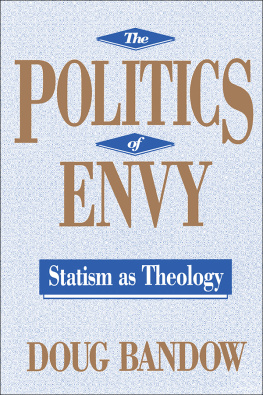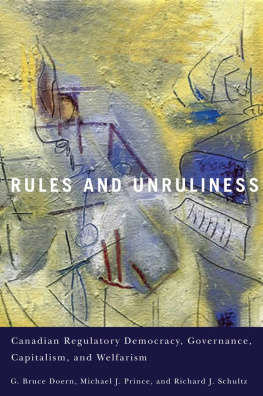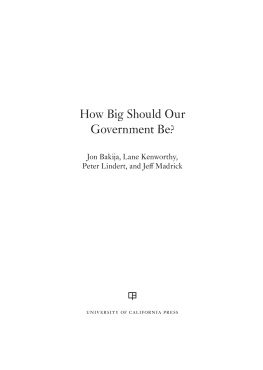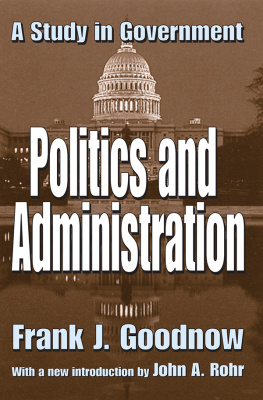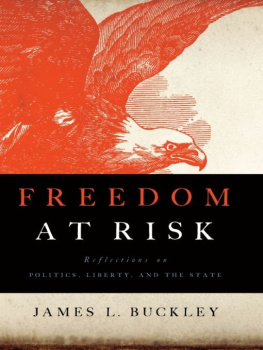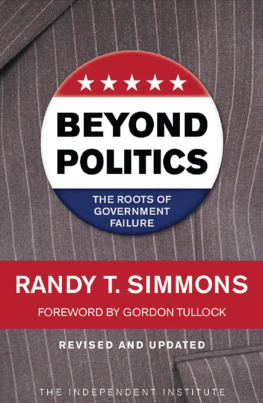THE POLITICS OF ENVY
Books by Doug Bandow
U.S. Aid to the Developing World:
A Free Market Agenda (editor, 1985)
Unquestioned Allegiance (1986)
Protecting the Environment:
A Free Market Strategy (editor, 1986)
Beyond Good Intentions:
A Biblical View of Politics (1988)
Human Resources and
Defense Manpower (1989)
The Politics of Plunder:
Misgovernment in Washington (1990)
The U.S. South Korean Alliance:
Time for a Change (co-editor, 1992)
Perpetuating Poverty: The World Bank,
the IMF, and the Developing World
(co-editor, 1994)
First published 1994 by Transaction Publishers
Published 2017 by Routledge
2 Park Square, Milton Park, Abingdon, Oxon OX14 4RN
711 Third Avenue, New York, NY 10017, USA
Routledge is an imprint of the Taylor & Francis Group, an informa business
Copyright 1994 by Taylor & Francis
All rights reserved. No part of this book may be reprinted or reproduced or utilised in any form or by any electronic, mechanical, or other means, now known or hereafter invented, including photocopying and recording, or in any information storage or retrieval system, without permission in writing from the publishers.
Notice:
Product or corporate names may be trademarks or registered trademarks, and are used only for identification and explanation without intent to infringe.
Library of Congress Catalog Number: 94-5551
Library of Congress Cataloging-in-Publication Data
Bandow, Doug.
The politics of envy : statism as theology / Doug Bandow.
p. cm.
ISBN 1-56000-171-2 : $34.95
1. Government spending policyUnited States. 2. Trade regulation
United States. 3. United StatesPolitics and government. 4. Libertarianism
United States. 5. Political ethicsUnited States. 6. Christianity and
politicsUnited States. I. Title.
HJ7537.B27 1994
382.30973dc20 94-5551
CIP
ISBN 13: 978-1-56000-171-3 (hbk)
For David and Deborah Wical, who will have to live in the world that we are making today.
In an odd way, though we live in a secular age, the United States is a remarkably religious nation. Our god is not the God of traditional faiths, however. It is the modern state. As the subtitle of Doug Bandows fascinating study suggests, our societys faith in the state has become a kind of theology, an organized system of social and cultural governance built around a godhead.
The scope of the statist theology is nearly without limit. Are there problems in families and communities internal lives? We then expect the state to take their place. We invest the state with the authority to properly manage our economies, organize our public lives, define our private morality, educate our children, tell us what we should eat and drink, and inform businesses how to conduct their affairs.
This theology of statism has grown to crowd out our belief in an immutable moral sense, which Hilaire Belloc rightly tells us is a mark of the Servile State. Whereas we once saw the state as necessarily limited in its proper interests and practical efficacy, we now willingly embrace the new religion of the state. In doing so we have lost faith in the idea of liberty as the organizing principle of public life and virtue as the goal of our private lives.
We should not be surprised that this theology of statism is so pervasive. People are naturally religious. Something tugs at the human soul to worship magnificence. Even in the most primitive people, there is an urge to glorify someone or something outside the self. The proper end to these longings is God, but without real faith, we find substitute gods. And so it is that Americans find themselves a society religiously devoted to the products of the political process. We imbue managers with tasks we could never imagine ourselves accomplishing in our private or community lives.
At one time in our history we were a fiercely independent people. The Americans Toqueville wrote about were devoted to the Christian God and to the concept of freedom. Solutions to social problems were dealt with on a local basis. Individuals, families, churches, and organic communities were independent of the national government. The federal purse was not theirs to draw from, and citizenship did not require paying heavy taxes.
We have come to accept levels of tyranny today that would have seemed unthinkable even a few generations ago. In 1913, for example, an amendment was proposed in Congress that would have capped federal income tax at 1 percent of income on high earners. It was rejected because many members of Congress felt it would encourage government to immediately increase the tax to that very level, creating a political and moral hazard.
Now the government at all levels extracts nearly $2 trillion a year from the public and over 40 percent of the national income. We rarely think about what could have been produced had it been left in the hands that had labored to earn it. How much more would the private sector have produced? How much more would have been given to charity?
This new religion did not come to us in the modern equivalent of the Great Awakening. It came slowly and subtly, but nonetheless deliberately. To tell the story we could return to Nixons wage and price controls, Johnsons Great Society, Roosevelts New Deal, or Wilsons Progressivism. In retrospect all these seminal periods seem to form a pattern. We thought we were doing good. But, as G.K. Chesterton wrote, in some ways the modern world is far too good. It is full of wild and wasted virtues. We intended well, but we were pushing ourselves further into the mire of statism, giving up our individual and social autonomy for promises of virtue that were never fulfilled.
Slowly, a peculiar American version of Fabian socialism began to be accepted at all levels of our society. Every agency expected a larger budget, more power, and more employees next year than this. We began to exchange liberty for higher taxes and ever intrusive regulations and mandates, all of which diminished our freedom and changed the focus of faith from God to a new godhead centered in institutions of coercion and compulsion.
The process continues today. When an epidemic of poverty afflicted our nation, we looked to government to come up with a solution. What we got for this solution was another epidemic, one of out-of-wedlock births. History would have been different if we had had faith in our communities to encourage productivity and chastity. Rather, we started to believe that the state could solve all social, spiritual, medical, and economic ills, and paid little attention to the costs of the elusive security it promised.
As a Christian libertarian, Doug Bandow puts forth the idea that statism is a grave threat to both traditional religion and human liberty. He encourages Christians and libertarians to find common cause in the goal of staying the false god, and returning our society to one in which both virtue and freedom flourish.
Mr. Bandow carries many topics under the theme of statism, including a dangerous and radical environmentalism, a reckless foreign interventionism, an intrusive regulatory apparatus, and an unproductive income redistribution. Among his most provocative topics is the new prohibitionism. Even as public and private morality decay, each legislative session spawns new laws for us to obey.

